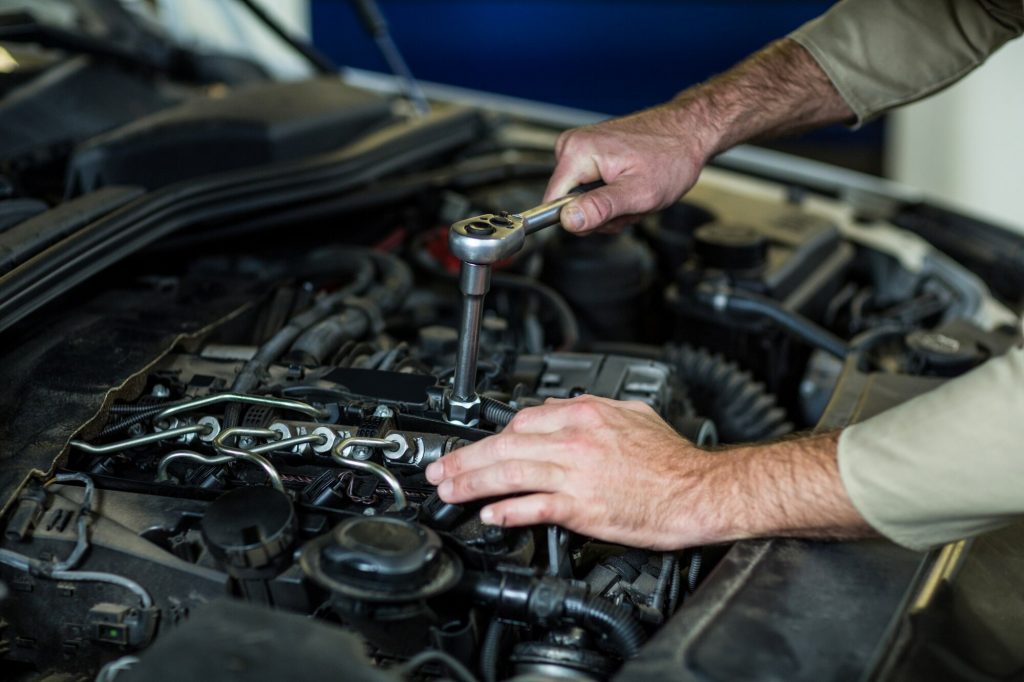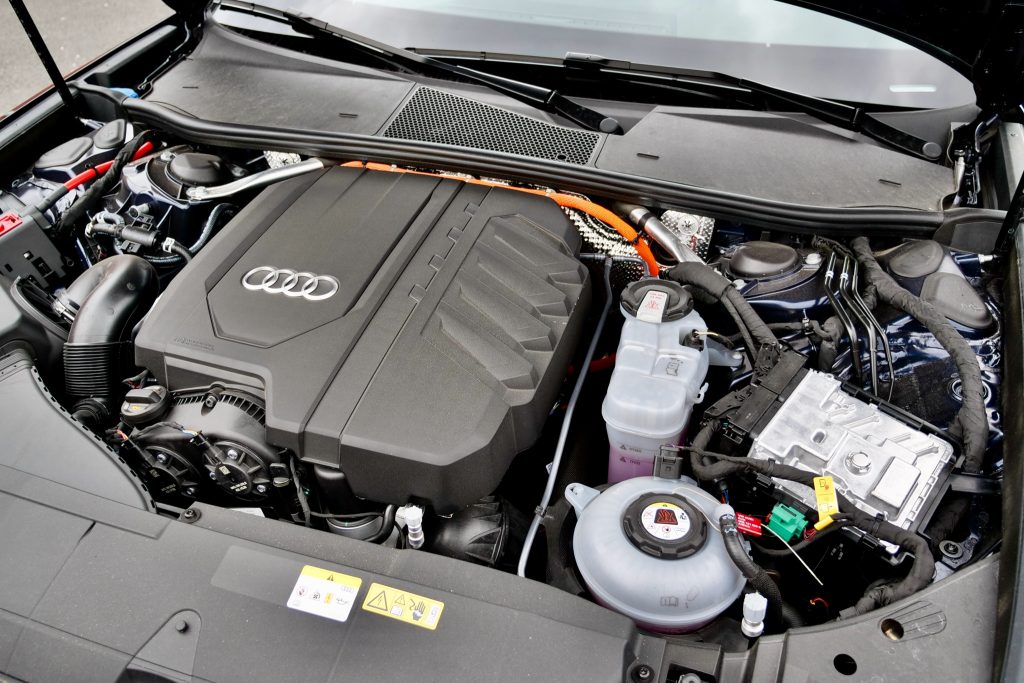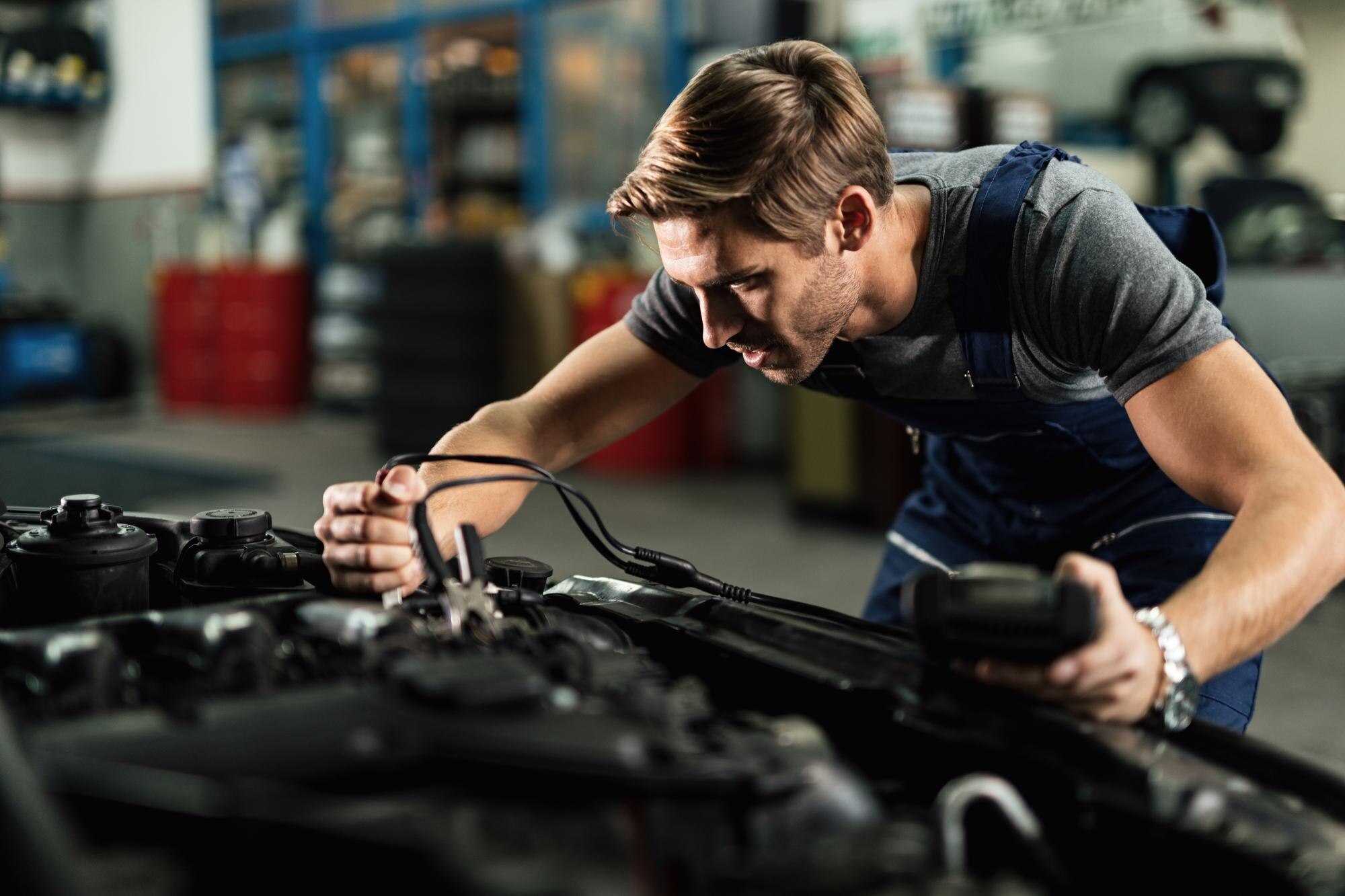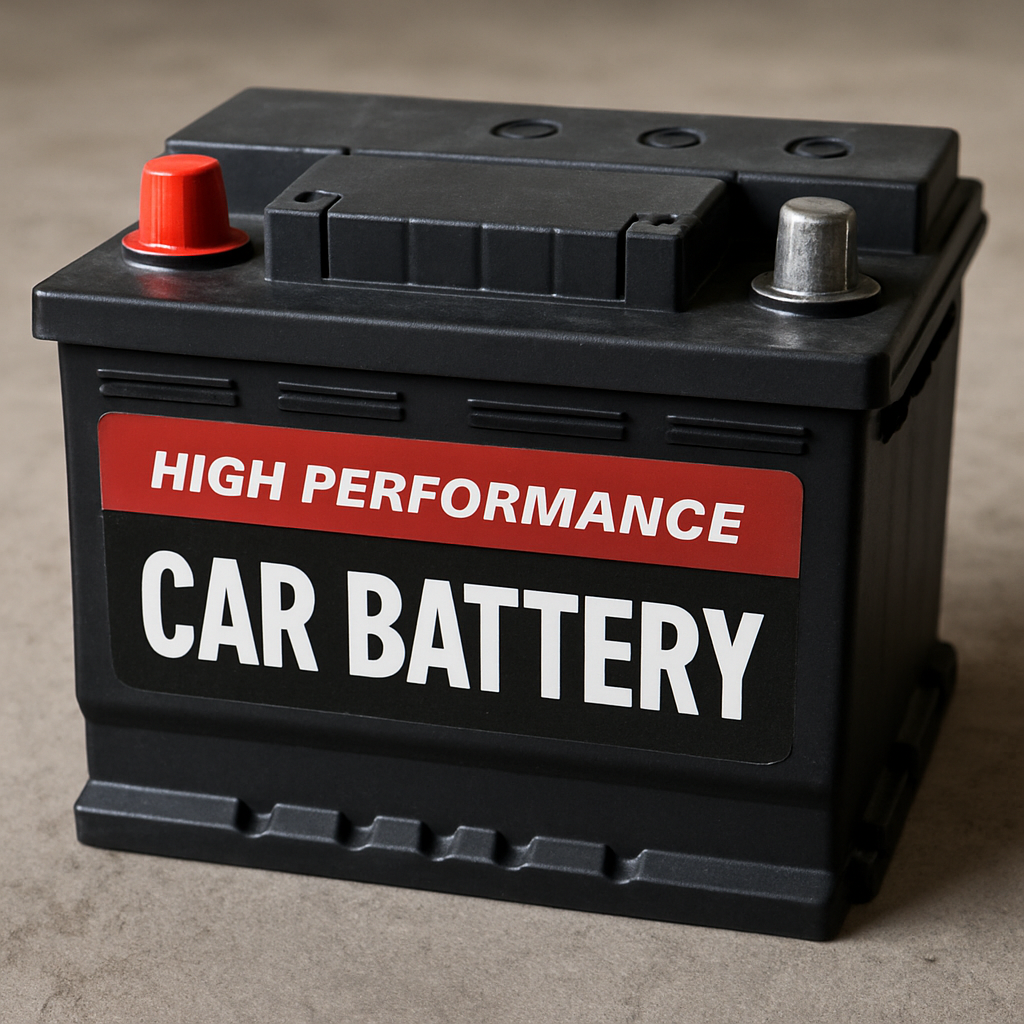Stop/start technology is becoming increasingly common in modern vehicles. This system is designed to save fuel and reduce emissions by automatically shutting off the engine when the vehicle is idle, such as at a traffic light, and restarting it when the driver is ready to move.
However, this technology places a significant demand on the vehicle’s battery.
Unlike traditional car batteries, stop/start batteries are designed to withstand the frequent starts and stops. They are built to provide the necessary power to maintain vehicle functions during the engine-off phases.
But what happens if you put a normal battery in a stop/start car?
This article aims to answer this question, exploring the differences between standard car batteries and those specifically designed for stop/start systems.
We will also delve into the potential risks and impacts of using the wrong type of battery in a stop/start vehicle.
Whether you’re a car owner, an automotive enthusiast, or considering purchasing a stop/start vehicle, this article will provide you with the knowledge you need to make informed decisions about your vehicle’s battery needs.

Understanding Stop/Start Technology and Its Battery Requirements
Stop/start technology is an innovation designed to conserve fuel and reduce emissions. It works by automatically shutting off the engine when the vehicle is idle and restarting it when the driver is ready to move. This technology is particularly beneficial in urban driving conditions, where vehicles often spend a significant amount of time idling at traffic lights or in stop-and-go traffic.
However, the frequent starting and stopping of the engine places a significant demand on the vehicle’s battery. Unlike traditional car batteries, which are primarily used to start the engine and then recharged by the alternator, stop/start batteries must provide power to maintain vehicle functions during the engine-off phases. This includes powering the vehicle’s electrical systems, such as the lights, radio, and air conditioning.
The electrical demands of stop/start systems require specialized batteries with higher cycle life, greater durability, and increased reserve capacity. These batteries must be able to withstand the frequent charge and discharge cycles associated with the stop/start function, without compromising their performance or lifespan.
Therefore, understanding the specific requirements of stop/start technology is crucial when choosing a battery for your vehicle. Using the wrong type of battery can lead to decreased performance, increased wear and tear, and potential damage to your vehicle’s electrical systems.

The Difference Between Standard and Stop/Start Car Batteries
Standard car batteries, also known as starting, lighting, and ignition (SLI) batteries, are designed to provide a large burst of power to start the engine. Once the engine is running, the alternator takes over to power the vehicle’s electrical systems and recharge the battery. These batteries are not designed to provide sustained power to the vehicle’s electrical systems when the engine is off.
On the other hand, stop/start car batteries are designed to provide both the power needed to start the engine and the sustained power to run the vehicle’s electrical systems during the engine-off phases. They are built to withstand the frequent charge and discharge cycles associated with stop/start technology.
Key differences between standard and stop/start car batteries include:
- Durability: Stop/start batteries are more durable and can withstand more charge and discharge cycles than standard batteries.
- Reserve Capacity: Stop/start batteries have a higher reserve capacity, allowing them to power the vehicle’s electrical systems for longer periods when the engine is off.
- Cycle Life: Stop/start batteries have a higher cycle life, meaning they can go through more charge and discharge cycles without losing their capacity.
In conclusion, while standard and stop/start car batteries may appear similar on the outside, they are fundamentally different in their design and function. Understanding these differences is crucial when choosing a battery for a stop/start vehicle.
The Risks of Using a Normal Battery in a Stop/Start Vehicle
Using a normal battery in a stop/start vehicle can lead to several issues. The most immediate risk is the premature failure of the battery. Standard batteries are not designed to handle the frequent start/stop cycles that are characteristic of stop/start systems.
This frequent starting and stopping puts a lot of strain on the battery. Over time, this can lead to the battery losing its ability to hold a charge. When this happens, the battery will need to be replaced much sooner than expected.
Another risk is the potential impact on the vehicle’s performance. If the battery is unable to provide the necessary power during the engine-off phases, this could affect the operation of the vehicle’s electrical systems. This includes critical systems like the headlights, air conditioning, and infotainment system.
Lastly, using the wrong type of battery could potentially void the vehicle’s warranty. Many manufacturers specify the type of battery that should be used in their vehicles. Using a different type of battery could be seen as a modification, which could void the warranty.
The Role of Enhanced Flooded Batteries (EFB) and Absorbent Glass Mat (AGM) in Stop/Start Systems
Enhanced Flooded Batteries (EFB) and Absorbent Glass Mat (AGM) batteries play a crucial role in stop/start systems. These batteries are specifically designed to handle the high energy demands of these systems.
EFB batteries are an upgrade from traditional lead-acid batteries. They have improved charge acceptance and greater cyclic durability. This makes them better suited to the frequent start/stop cycles of stop/start systems.
AGM batteries, on the other hand, offer even greater durability and performance. They use a special glass mat separator that wicks the electrolyte solution between the battery plates. This design allows for higher power output and longer life, making them ideal for stop/start systems.
Both EFB and AGM batteries are more expensive than traditional batteries. However, their superior performance and longer lifespan can make them a more cost-effective choice in the long run. Especially for vehicles equipped with stop/start technology.
Can You Use a Normal Battery in a Stop/Start Car? Exploring the Possibilities
The question of whether you can use a normal battery in a stop/start car is a common one. Technically, a normal battery can power a stop/start vehicle. However, it may not be able to handle the high energy demands of the stop/start system over time.
A normal battery is designed for a single start per journey, while a stop/start battery is designed for multiple starts. This means that a normal battery may degrade faster when used in a stop/start vehicle due to the increased number of start cycles.
In conclusion, while it is possible to use a normal battery in a stop/start car, it is not recommended. Doing so could lead to reduced battery life and potential damage to the vehicle’s electrical system. It’s always best to use the type of battery recommended by the vehicle manufacturer.
The Impact on Vehicle Performance and Lifespan When Using the Wrong Battery
Using the wrong battery in a stop/start vehicle can have a significant impact on its performance. The stop/start system relies on the battery to provide power during the engine-off phase. If the battery is not up to the task, the system may not function properly.
This could lead to issues such as the engine not restarting promptly when the driver releases the brake pedal. In some cases, the vehicle’s electrical system could also be damaged. This is because a normal battery may not be able to handle the high electrical loads of a stop/start system.
In terms of lifespan, using the wrong battery could lead to a shorter battery life. This is due to the increased number of start cycles that a normal battery is not designed to handle. As a result, the battery may need to be replaced more frequently, leading to higher maintenance costs.
How to Choose the Right Battery for Your Stop/Start Vehicle
Choosing the right battery for your stop/start vehicle is crucial for its optimal performance. The first step is to consult your vehicle’s owner’s manual or manufacturer’s specifications. These resources will provide the necessary information about the type of battery your vehicle requires.
It’s also important to consider the battery’s durability and cycle life. Stop/start systems require batteries that can withstand frequent starting and stopping. They also need batteries with a high cycle life to handle the increased number of start cycles.
Here are some key factors to consider when choosing a battery for your stop/start vehicle:
- Battery type (EFB or AGM)
- Battery capacity
- Cycle life
- Reserve capacity
- Warranty
Remember, using the right battery not only ensures the smooth operation of your vehicle’s stop/start system but also extends the lifespan of the battery and the vehicle itself.
The Importance of Professional Installation and Battery Registration
Professional installation of your stop/start car battery is crucial. This is because stop/start systems are more complex than traditional ones. A professional can ensure the battery is installed correctly, avoiding potential damage to the vehicle’s electrical system.
Moreover, many modern vehicles require battery registration. This process informs the vehicle’s battery management system that a new battery has been installed. It helps the system adjust its charging strategy to suit the new battery. Failure to register a new battery can lead to premature battery failure and other issues. Therefore, it’s best to leave the installation and registration to professionals.
Future Trends in Stop/Start Technology and Battery Development
As the automotive industry continues to evolve, so does stop/start technology. The demand for more fuel-efficient and environmentally friendly vehicles is driving advancements in this area. This includes the development of more robust and efficient batteries to support the increasing electrical demands of modern vehicles.
Battery technology is also evolving to keep pace with these changes. Innovations such as lithium-ion batteries and supercapacitors are being explored for their potential to enhance the performance of stop/start systems. These technologies promise higher energy density, faster charging times, and longer lifespan compared to traditional lead-acid batteries.
In conclusion, the future of stop/start technology and its associated battery requirements is promising. As technology advances, we can expect to see more efficient and reliable stop/start systems, powered by innovative battery solutions.
Conclusion: Ensuring the Right Battery for Your Stop/Start Car
In conclusion, the battery plays a crucial role in the functionality and efficiency of stop/start systems. Using the correct battery not only ensures optimal vehicle performance but also extends the lifespan of the battery and the vehicle itself.
It’s essential for car owners to understand the specific needs of their stop/start vehicles and make informed decisions when replacing their batteries. Always consult your vehicle’s manufacturer or owner’s manual for battery specifications, and consider professional installation to ensure proper battery registration and compatibility with your vehicle’s systems.




